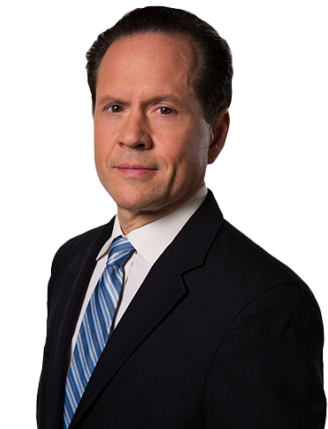Nevada has extensive universal motorcycle helmet legislation mandating DOT-certified helmets be worn by riders and passengers when operating on public roads, parking lots, trails or highways. Violations enable key defenses for insurance companies to dispute motorcycle accident claims and limit damages payouts after crashes through comparative negligence statutes.
| If You Want To Know… | Key Takeaways | |
| How helmet law violations impact liability disputes | – Enables comparative negligence arguments assigning partial fault – Typically reduces injury claim value and settlement amounts | – Defense alleges you increased damages through non-compliance |
| Overcoming violations in pursuing maximum damages | – Proving other driver overwhelmingly at fault – Disputing violation directly worsened specific injuries | – Retaining experienced lawyer essential for negotiations |
| When a violation may have limited or no impact | – If medical evidence shows injuries were unavoidable – Technicality unrelated to actual accident circumstances | – If violated but has extensive proof of otherwise prudent operation |
| Nevada laws on helmet compliance standards | – Must be DOT-FMVSS 218 certified – Full-face style offers the best protection – With proper labeling and chin straps | – Novelty or novelty DOT helmets prohibited |
| Penalties & fines for not wearing a helmet | – $100 plus court fees first offense – Up to $500, probation and license suspension for subsequent offenses | – Increased liability risks if involved in accident |
Overview of Nevada’s Universal Motorcycle Helmet Law
Nevada has stringent universal helmet legislation mandating approved helmets for nearly all motorcyclists and passengers when riding on public roads, private roadways open to the public like parking lots, designated off-road trails, and in sidecars. Only three-wheeled cab vehicles with steering wheels are exempt.
Situations Requiring DOT Helmets
- All public roads and highways
- Private roadways like shopping center parking areas
- Signed off-road trails unless specified
- Any sidecar passengers
Approved Helmet Standards
Helmets must display certification showing they meet or exceed federal standards:
- DOT FMVSS 218 – U.S. Department of Transportation stickers
- Snell Memorial Foundation – SA, M or K certification on label
While no style specified, full-face helmets provide maximum protection. All legal helmets must also feature sturdy inner lining, chin straps, limited helmet shell protrusion, and manufacturer information.
Penalties for Violations
| Offense | Fine | Additional Consequences |
|---|---|---|
| 1st Offense | $100 | |
| Subsequent Offenses | Up to $500 + Possible Probation or License Suspension | Increased medical liability + costs |
How Helmet Violations Can Undermine Injury Claims
In Nevada, failing to wear a DOT-certified helmet while operating or riding as a passenger on a motorcycle can severely jeopardize your injury claim and ability to recover accident damages.
Not wearing a helmet violates state law. As a result, joint liability principles apply when assessing fault and proportional responsibility for injuries sustained.
The defense almost always cites helmet non-compliance to dispute liability and reduce settlement values by arguing:
You Deliberately Increased Your Injury Risks
- Assumed clear dangers of riding unprotected
- Failed to mitigate preventable head trauma
Additional Injuries Resulted From Lack of Helmet
- Head, neck, and facial wounds enhanced
- Concussions or traumatic brain injuries more prevalent
By highlighting your non-adherence to crucial public safety statutes, the defense contends you should share in liability for injuries and bear associated financial burdens through reduced compensation. The cumulative effect of multiple violations can lead to a higher share of fault being assigned to you. For how partial fault factors into a case, see comparative negligence in Nevada.
Key Legal Defenses Citing Helmet Non-Compliance
When you violate motorcycle helmet laws, common legal defenses raised include:
Assumption of Risk
- Argues the plaintiff assumed all dangers voluntarily
- Contends head injuries were a foreseeable potential outcome
Failure to Mitigate Damages
- Claims the plaintiff failed to minimize preventable harms
- Asserts helmets could have greatly reduced damages
Contributory Negligence
- Alleges violations partly caused claimed damages
- Disputes full liability based on non-compliance
Additional Defenses
- Reckless endangerment of self and others
- Violation of duty of care to minimize risks
These defenses aim to defeat or limit liability claims citing deliberate disregard for public safety statutes. The defense also leverages these arguments during settlement negotiations to justify substantially decreasing offers.
An experienced attorney can craft counterarguments to overcome these defenses in court. But your path to maximum damages will be much smoother by simply wearing a DOT-certified helmet when riding.
Employing Legal Strategies to Dispute Helmet Violations
Make no mistake, overcoming helmet violations is an uphill battle in injury claims. Still, working closely with your attorney, several arguments may help limit liability and damages reductions.
Disputing Direct Causal Link to Injuries
While the defense will allege additional injuries resulted from riding helmetless, the burden of proof falls on them to demonstrate specific wounds tied directly to non-compliance. Thoroughly investigate:
- Would a helmet have prevented or reduced each injury? Expert testimony helps.
- Highlight other driver negligence as the main accident cause, regardless of helmet. Legal options—such as suing the other driver after a motorcycle accident—may still apply depending on the circumstances.
Arguing Mitigating Circumstances
If you temporarily removed your helmet because it was broken or dangerously impaired vision, highlight these extenuating factors. Emphasize you otherwise always comply with motorcycle safety laws. Document past helmet purchases.
Challenging Excessive Liability Reduction
Comparative negligence aims for liability and damages aligned with proportional fault. Argue an extreme reduction overreaches your non-compliance role.
Getting the Full Settlement Context
Insurers often use violations to justify lowering settlement offers. That first offer may not reflect the true value of your claim—especially if fault is being disputed. Knowing how to push back against an insurer’s fault determination can play a key role in reaching a fair outcome. Data also shows that working with an experienced attorney often leads to significantly higher settlements.
The best approach, however, still avoids this obstacle altogether. Protect your rights and safety — simply wear a DOT-approved motorcycle helmet on every ride.
When Helmet Violations May Not Affect Claims
Even without wearing a helmet, you may still pursue full damages without liability reductions if certain conditions are met:
Non-Compliance Didn’t Increase Specific Injuries
For instance, you may have severe leg or spinal trauma unrelated to helmet use. If medical evidence and expert testimony clearly attributes injuries solely to collision forces, lacking a helmet likely played no role. Demonstrating this isolates causation with the other motorist’s negligence.
Violation Didn’t Contribute to Accident Circumstances
Let’s say you mistakenly had a non-compliant novelty helmet. If fully licensed and the helmet itself didn’t hinder vision, vehicle control or crash dynamics in any way, it shouldn’t impact fault or compensation.
Overwhelming Evidence Favors Minimal/No Role in Liability
If other driver was grossly negligent like DUI or reckless endangerment, with crystal clear evidence and witness corroboration of your legal operation, violation impacts may be limited or defeated entirely.
Consult an Attorney Regardless of Scenario
Navigating helmet-related issues after a crash often involves legal gray areas. Having an attorney who understands Nevada’s motorcycle safety laws can help ensure your rights are protected and your case is evaluated fairly.
Takeaways for Pursuing Maximum Damages
Always Wear DOT-Certified Helmet
Strictly follow Nevada’s helmet law requiring DOT-FMVSS 218 certified helmets for riding on any public roads, trails, parking lots or highway shoulders. This eliminates a pivotal defense strategy undermining injury claims.
Consult Jack Bernstein’s 40+ Years Expertise
If riding without a helmet and involved in an accident, Jack Bernstein brings unrivaled experience fighting excessive liability reductions tied to violations. For over 40 years, Jack has leveraged his mastery of personal injury laws, passion for bike safety, and proven negotiation track record to successfully combat insurer tactics denying clients fair compensation.
Unlike large impersonal firms, Jack offers personalized legal strategies shaped by one-on-one collaboration. Past clients overwhelmingly praise Jack’s clarity explaining legal intricacies in everyday language. He wants clients fully empowered weighing options.
When you’re injured on the road, Jack’s personal mantra says it all — “Jack’s Got Your Back.”
Call today at (702) 633-3333 for your free consultation if you were in an accident riding without a helmet. Jack is ready to tackle every obstacle — so you can focus on recovery.
Spotlight Total Compliance With Other Motorcycle Laws
Emphasize you always properly license your bike, complete safety training refreshers annually, obey equipment regulations, carry insured coverage aligned with state minimums, and avoid any other traffic or substance violations. This strengthens your overall prudent duty of care profile.
While attorneys can assist if collisions occur, avoiding violations entirely is the surest path to fully protect your financial recovery rights in Nevada. Safety first, for both your health and future claim.
Contact Us for a Free Consultation
If you have been injured in an accident due to negligence, contact Jack Bernstein Injury Lawyers for a free, no obligation consultation with experienced Las Vegas accident lawyers. You will gain an advocate for every stage in the claims process until you have the compensation you deserve.
Jack Bernstein Injury Lawyers is available to help you handle your injury claim in the Las Vegas metropolitan area and beyond. Jack Bernstein and his team can offer you the personalized service and legal representation you deserve after an accident.
Call us at (702) 633-3333 or contact us today for a free consultation to discuss your case.

